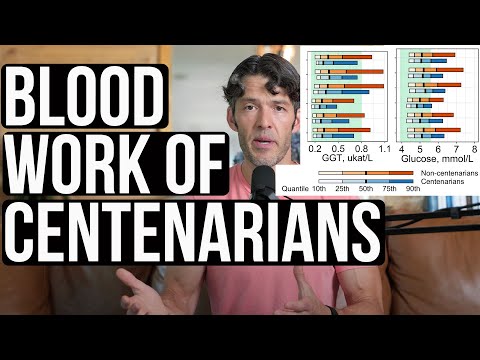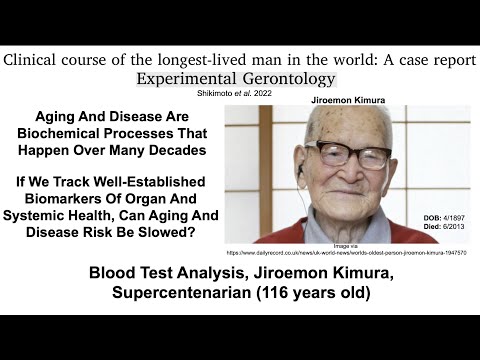A new article by one of the researchers:
May have to do with immunity. Iron is required for immunity, which is why, the Mayo Clinic has modified its suggested donation frequency from eight to twelve weeks.
https://www.mayoclinic.org/documents/blood-donor-frequency-change-pdf/doc-20079397
-
If iron is not allowed to build up, your immunity is lower, increasing your likelihood of becoming ill
Higher iron levels increase epigenetic age.
The results of present investigation unveiled the causality of iron overload on acceleration of epigenetic clocks. Researches are warranted to illuminate the underlying mechanisms and formulate strategies for potential interventions.
Did you just read the title? Did you read the conclusion at least?
Conclusions
In a nutshell, our results demonstrated the potential causal relationship of iron overload to accelerate epigenetic clocks.
Between the epigenetic predictions, and the actual age and biomarkers of the centenarians, I’d go with the actual data.
The centenarians already won the race. So reverse engineering their genetic gifts seems to me, to be the better approach.
This may be the U shaped curve again. The centenarians were tested at age 75. So, maybe, increased iron is needed beyond that age, because the killer for most seniors are infections, not effectively parried by a healthy immune system.
Yes, I think the key thing is probably a U-shaped curve. " the potential causal relationship of iron overload to accelerate epigenetic clocks.
Many older people, including myself, often fight iron deficiency.
That’d be like reverse engineering the genetics of lottery winners to gain their luck. As of now we simply don’t know whether they reached 100 due to sheer luck or other cofounding factors.
I just wanted to get this thread back on the main findings of the study, because im really interested in the findings you’ve highlighted.
Uric acid was the biggest association. Do we know what the mechanism of association would be. And how we might go about lowering it if were causative?
Uric acid. Think “gout”
Dr Rick Johnson (kidney doc) says:
Avoid high sugar, especially sugary drinks
Avoid alcohol, especially beer
Avoid purines (shellfish, sardines, gravy, etc)
Take 500mg vit C everyday
Avoid dehydration
Take SLGT2 inhibitors
Tart cherries.
Individuals consuming a vegan diet had the highest serum concentrations of uric acid compared to meat eaters, fish eaters and vegetarians, especially in men. Vegetarians and individuals who eat fish but not meat had the lowest concentrations of serum uric acid.
So, pesco-vegetarians have the best chance to be super centenarians. I’ll buy that.
As long as you don’t overdo the shellfish and sardines!!
Let’s do an informal poll uric acid vs diet!
My uric acid is stable at 220umol/l (3.7mg/dl) and I eat low carbs with animal proteins (20% red meat, 40% white meat and 40% fish)
My Uric acid is 5.1 mg/dl (only tested once a few months ago). I drink 1 beer a year, eat no shellfish, no sardines, no gravy…I eat 150-200 grams of animal protein most days of the week (almost all large fish). No red meat. No HPF. A lot of plant diversity. No dairy. No added sugar. No fruit juice. Lot’s of fruit (berries, apples).
Two tests in the last six months. 3.3 and 3.6 mg/dl. High carb and plenty of red meat.
We are at N=3 now.
So far we have 2 data points with low uric acid: 1 high carbs/red meat and 1 low carbs/meat(including red)
And a data point with medium uric acid level and no red meat.
Currently the carbs seem irrelevant and red meat has a slight advantage.
That’s never going to be a high power study but it’s fun anyway. ![]()
Mine is quite high being around 5mg/dl (300 umol/L). I am an unusually heavy drinker for a biohacker although I don’t drink every day. Today, for example, is a non-drinking day. Yesterday, however, I drank 3 pints of bitter and 4 cans of lager.
I do eat red meat although not masses, I would say I am mid range on carbs.
John, not suggesting you should, but curious If you’ve ever tried kudzu root when drinking. From memory it reduces conversion of alcohol, meaning you can reach and maintain an enjoyable merry state with lesser alcohol intake. People naturally drink less as a result ,(apparently)

